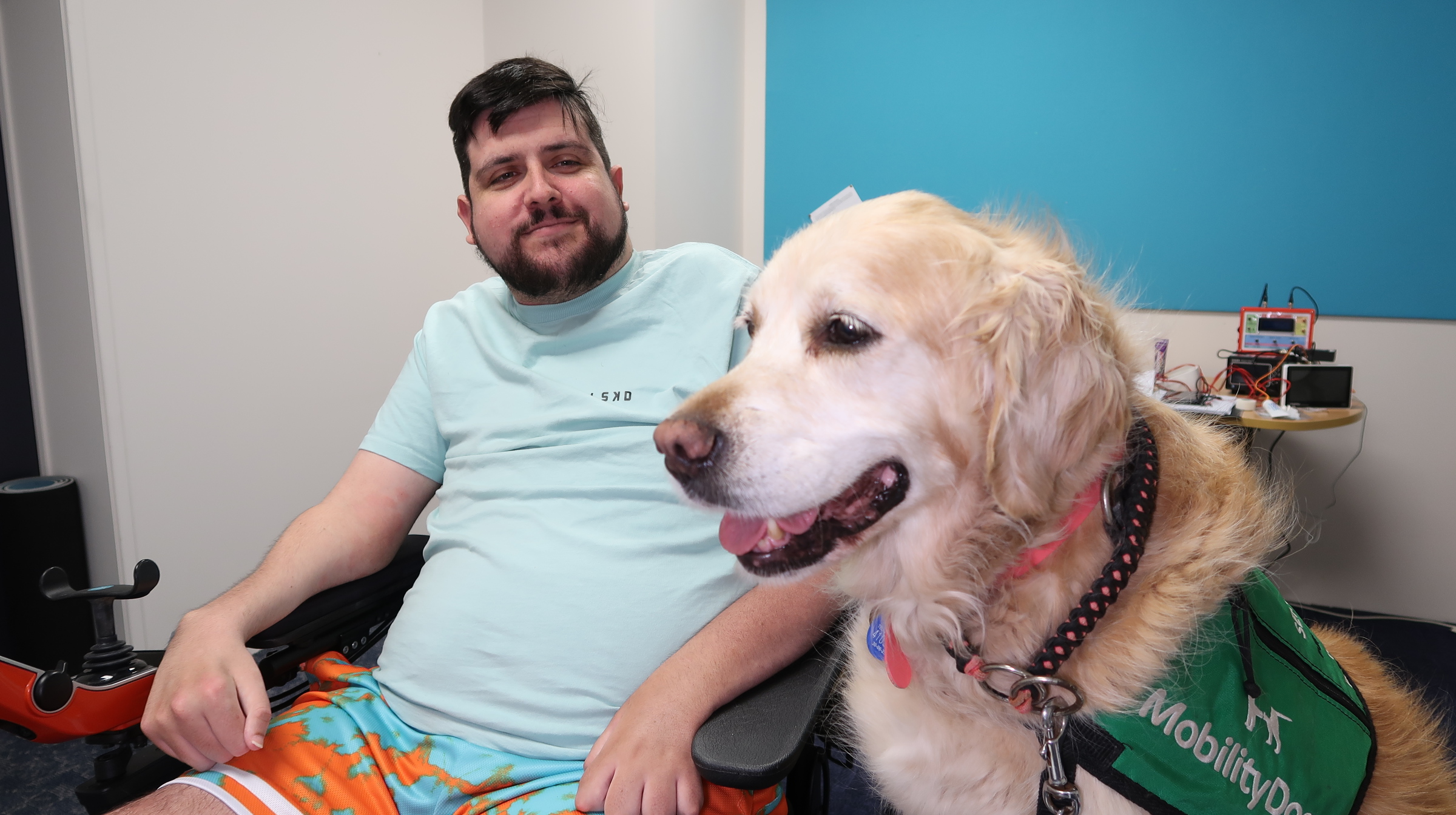His injury came from inside his own body.
Nathan was 16 years old and a talented basketball player. Already over six feet tall, he’d been selected for a New Zealand under-18 tournament team and his future was looking bright.
Nathan was 16 years old and a talented basketball player. Already over six feet tall, he’d been selected for a New Zealand under-18 tournament team and his future was looking bright.
It was late in the afternoon and his high school team was finishing their training session. His Mum, Denise, was the team coach. Playing a post-training game Nathan was thinking about his upcoming trip to Australia with his teammates.
As he reached up to block a ball, he winced. He felt a burning sensation in his left shoulder. Perhaps he’d pulled a muscle? Ten minutes later Nathan couldn’t move at all.
Nathan had had an unpredictable, and very rare, spinal infarct (or infarction). An internal bleed that deprived his spinal cord of oxygen between the C2 and T4 vertebrae. The doctors told Denise to fear the worst. They weren’t sure he’d survive the night.
Now at 27 years of age and a whopping 6’5’’ (he was told he’d stop growing, but…), tetraplegia changed his plans but has not held him back.
While there are a few tetraplegic medical doctors, like Australia’s Dinesh Palipana, the NZ and Australian Medical School requirements were changed in 2013. They now rule out anyone who doesn’t have at least one fully functioning arm – like Nathan.
So, he turned to a Biomedicine and submitted his Doctoral thesis late last year. Not the medical doctor he dreamed of becoming but soon to be a doctor, nonetheless.
When Nathan learnt we were bringing Get a Grip to New Zealand, he knew he had to take part.
Living in Wellington made participating in the study challenging. But he was determined. So, at the end of January, Nathan, Denise, and service dog, Lyric climbed into Nathan’s van, and they drove to Auckland for a six-week stay.

Nathan and Service Dog, Lyric.
“Lyric picks things up for me, she opens doors, she loads the washing machine. Altogether, I think, she knows about 93 different tasks. And she does them all while looking absolutely gorgeous.”
Nathan’s goal for Get a Grip is simple, “To be able to cough. If I could just breathe a little bit easier. That would be my biggest win.”
Nathan’s stay in Auckland meant that he was also able to participate in Talk the Walk – The 2025 Spinal Cord Injury Symposium hosted annually by our very own Spine Squad.
Talk the Walk saw spinal cord injury researchers from across the world come together with clinicians, carers, service providers and those with lived experience, like Nathan.
There he shared his life experiences and his knowledge in health research. The type of inclusive conversations that are a cornerstone of our Spine Squad’s approach.
Nathan’s spinal cord injury is as relevant to our research and treatment studies as any other. Please, join us as we strive to understand, treat, and heal spinal cord injuries.
Make a difference, today.
Thank you.
